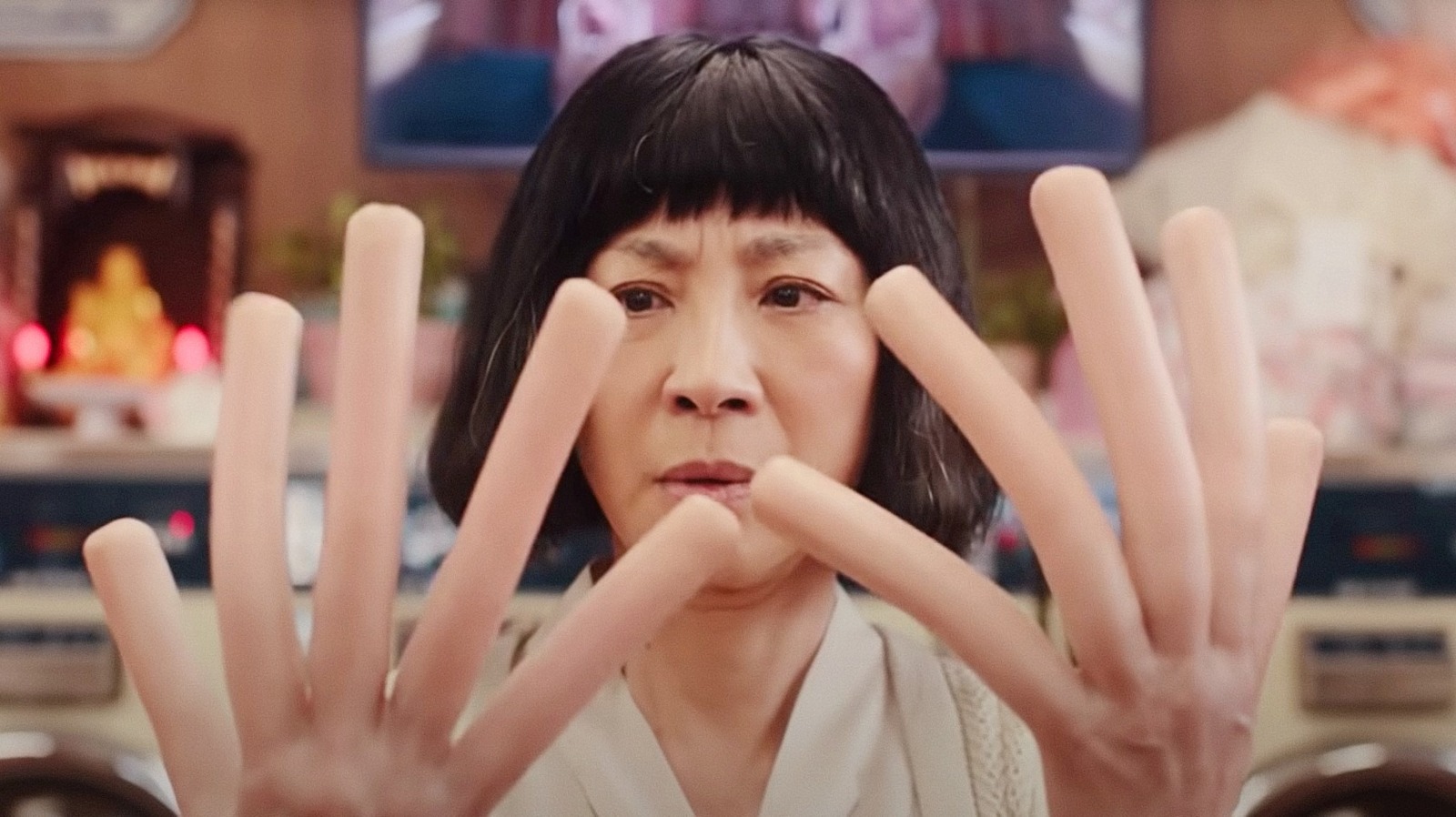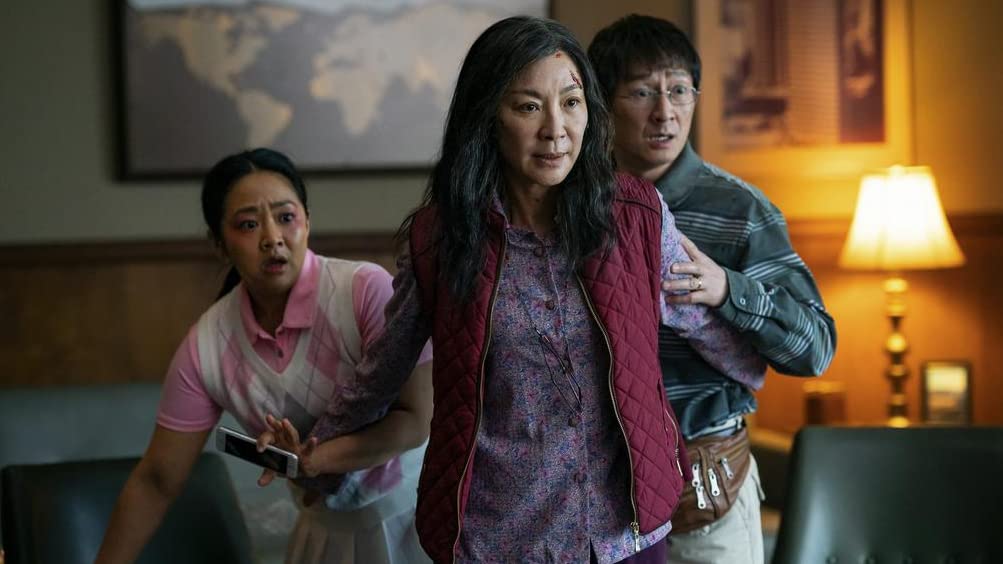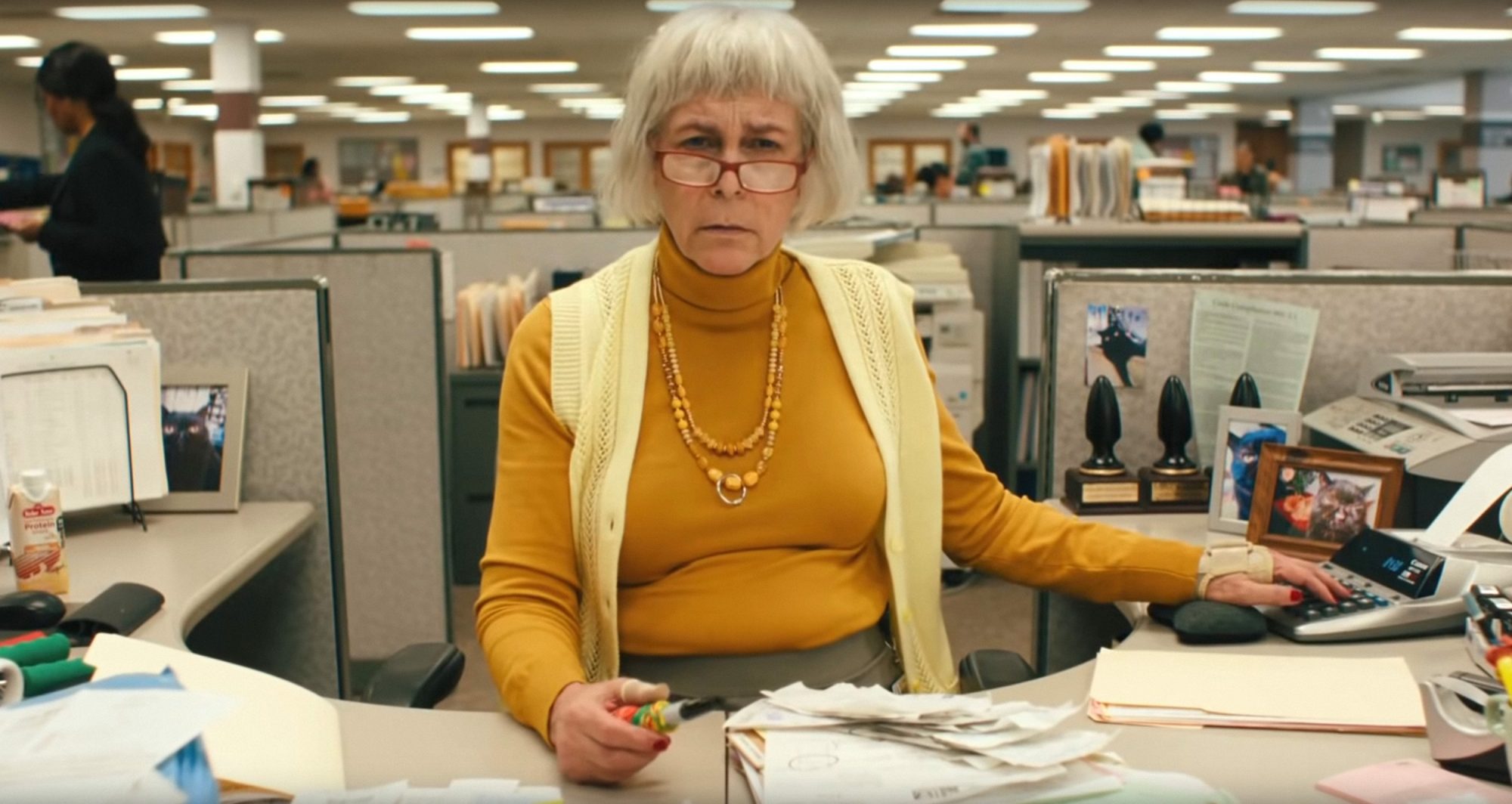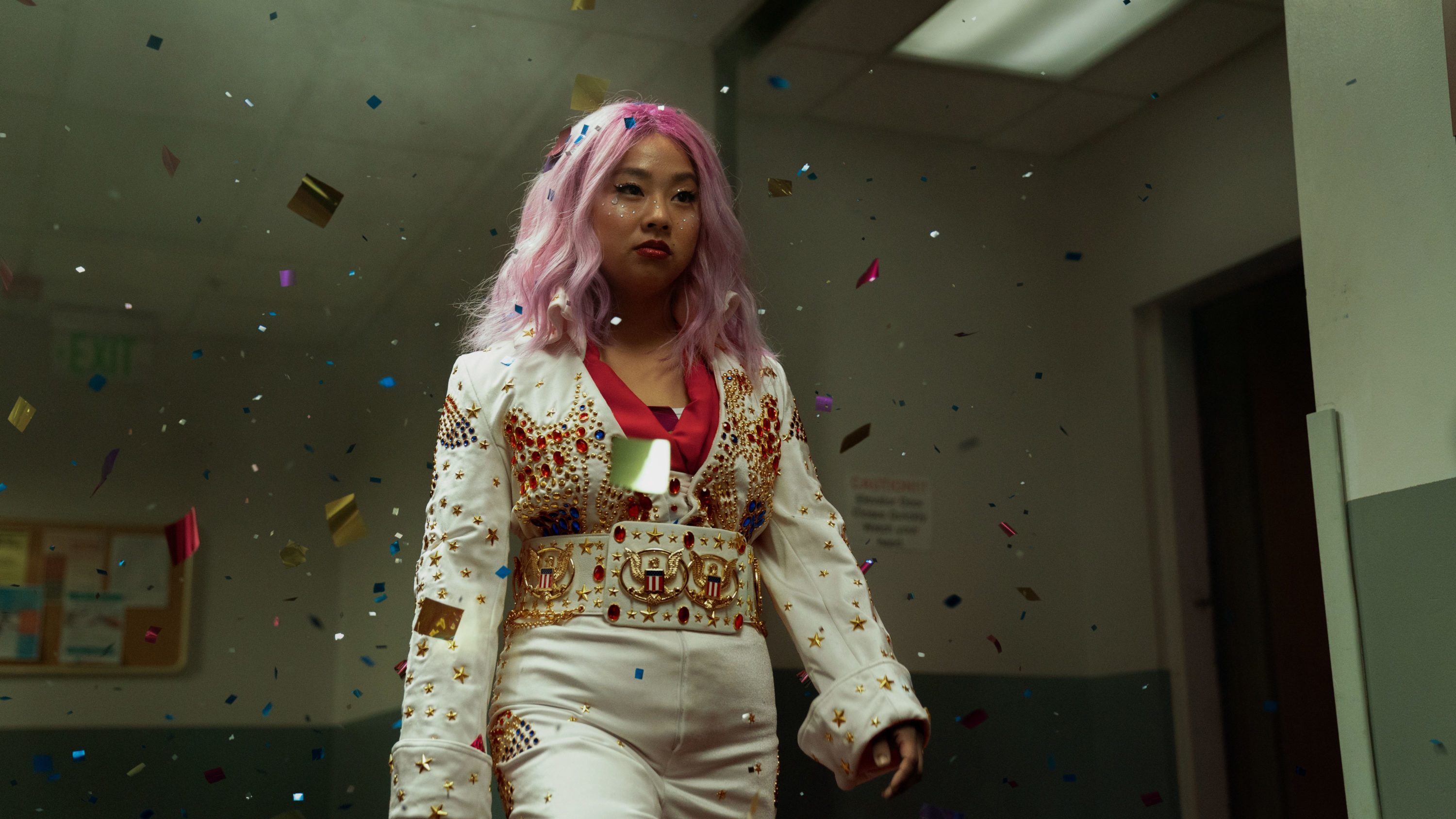There’s a moment in the second half of Everything Everywhere All at Once where two rocks are having a conversation on an otherwise deserted planet. Yes, I said rocks. Not with their mouths – rocks don’t have mouths, silly – but with their thoughts translated out in subtitles, kind of like the ghosts in A Ghost Story. They contemplate what it means to be rocks, forever sitting, unmoving, on the edge of this cliff, possessing an otherwise inexplicable awareness that there might be other alternatives. When one finally starts to hop towards the other, the first asks how this is part of the rules. The second gives a response that should be obvious to anyone who has watched the first two-thirds of this movie: “There are no rules!”
That conclusion should also be obvious to anyone who watched the debut feature of Daniel Kwan and Daniel Scheinert, who go collectively by the moniker Daniels, which was 2016’s Swiss Army Man. That movie featured the most SEO-optimised phrase to emerge from it – a farting corpse (played by the erstwhile Harry Potter, Daniel Radcliffe) – who gave just a small indication of the Daniels’ artistic calling card that rules are meant to be broken. Doctor Strange may be laying claim to a multiverse of madness in the latest Marvel movie, set to be released some three weeks from now, but a trip through the minds of the Daniels shows just how spurious that claim is.
There are rules for the multiverse of this film, sort of, because otherwise you wouldn’t have any bearings within the story. But in a perfectly Daniels bit of logic, these rules are derived from the very breaking of what we normally consider the rules of behaviour and engagement. You’ll see what I mean in a moment.
Another telltale Daniels element: All this rule-breaking and universe-hopping is happening not to a superhero with already exceptional abilities, but to a late middle-aged Chinese immigrant living in America and running a laundromat. That’s Evelyn Wang, played by Michelle Yeoh. She’s a fierce, impatient and disorganised woman whose husband Waymond (Ke Huy Quan) is not a lot better on the business front, but at least has a childlike and cheery demeanour. Their essential personality clashes, plus their problems with the Internal Revenue Service, have finally led Waymond to the precipice of asking for a divorce. Their young adult daughter Joy (Stephanie Hsu) is caught in the middle, and her status as a lesbian only complicates things upon the arrival of Evelyn’s traditional father (James Hong) from China.
It would be just a depressingly ordinary scenario except that the closed circuit TV captures Waymond leaping around the laundromat at great speed, participating in some secret business as he springs from washing machine to washing machine. That business is revealed when they bring a mound of rumpled receipts to the local IRS office, trying to claim business-related write-offs for any number of Evelyn’s hobbies – their only chance to stay above water. The bossy IRS agent, Deirdre (Jamie Lee Curtis), is having none of it, and you get the sense Evelyn just wants to teleport out of this moment into a life where things are simpler.
Fortunately, that sort of happens with an alternate version of Waymond shuffles her into a broom closet and tells her he’s been sent from another universe, as this version of Evelyn is the only one who can stop the multiverse’s marauding tyrant, Jobu Tupaki, who also happens to look like Evelyn’s daughter Joy. Evelyn might be able to teleport out of this unenviable moment of her life, but things are decidedly not simpler.
Where the film goes from here – well, appropriately, it goes everywhere. We soon learn that Evelyn can jump between universes to instantly obtain knowledge or skills that other versions of herself may have, Matrix-style. The fighting skills of the actress incarnation of Evelyn come in particularly handy. These jumps are fuelled by performing an action – it almost doesn’t matter what it is – that is aggressively out of sync with whatever situation the leaper is currently experiencing, such as, spontaneously breaking one of your own fingers, or singing a song in the middle of a fight. In other words, Evelyn can universe-swap by breaking the rules.
To give away many more of this story’s glorious plot details would be to rob prospective viewers of the thrill of discovering its eccentric sensibilities themselves. But a little more of the movie’s flavour might help convince anyone on the fence, so let’s just say to expect lots of crazy outfits, unusual allusions to pop culture, spectacular usages of Jamie Lee Curtis, an all-powerful everything bagel, plenty of googly eyes, and one universe where human beings evolved with hot dogs for fingers.
Everything Everywhere All at Once is an explosion of creative energy, one the title can only begin to accurately encapsulate. It would be safest just to say that it defies description, except that it is a critic’s obligation to describe what makes an effective film so effective. It’s not only the wild, everything-but-the-kitchen-sink approach the Daniels bring to narrative storytelling that makes it such a joy, and so consistently funny. You laugh from the surprises as much as from the callbacks to long-running jokes that continually pay themselves off. But as they did with Swiss Army Man, the Daniels also cram in emotionally confronting material that homes in on the deepest parts of the characters’ pain. Laughter and – well, I won’t say tears, but maybe sometimes tears – alternate with a sort of alarming frequency that miraculously works.
The nimble performance of Yeoh is central to why it all comes together so well. It’s not that Yeoh doesn’t profile as a fighter or a physical performer, but Crouching Tiger, Hidden Dragon was more than 20 years ago. Our knowledge that this shouldn’t be happening to this person – “shouldn’t” by the standards of Hollywood filmmaking – is key to what makes Everything such a peculiar delight. Curtis at age 63, four years Yeoh’s senior, is also a fight scene combatant – as implausible as it is the most natural thing this Daniels world could offer us. The film also marks a return to movies we never knew we wanted from Ke Huy Quan, who played Short Round in Indiana Jones and the Temple of Doom when he was just a kid. Now at age 50 and gone from the movies for 20 years, Quan has been depriving audiences of a sprightly presence that leaves us grinning – especially now that he’s no longer a motormouth pipsqueak.
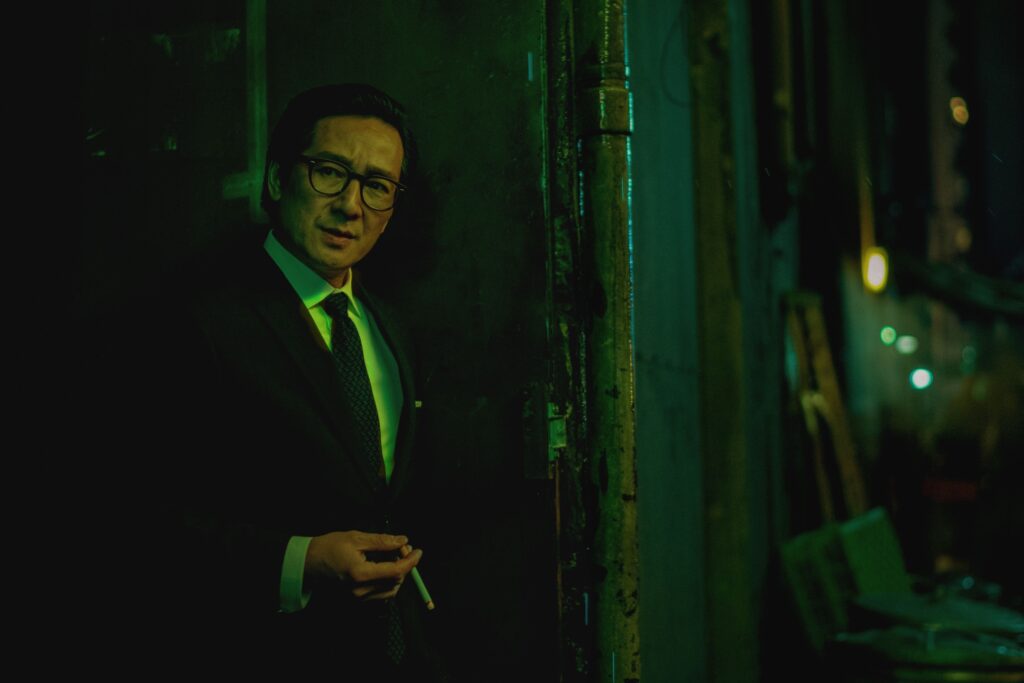
Everything Everywhere All at Once is a dense thicket of visual concepts, narrative themes and just plain goofy shit, but it hacks through all this with a machete of emotional clarity. At its core, it explores existential notions of the choices we have made or not made that have effectively led to a multiverse of unlived lives – some better than this one, some worse. It seeks to identify and validate the purpose of the one we did live, even if it was as rocks on a deserted planet – and to remind us that even as those rocks, it is never too late to turn it all around.
Everything Everywhere All at Once opens today in cinemas.
